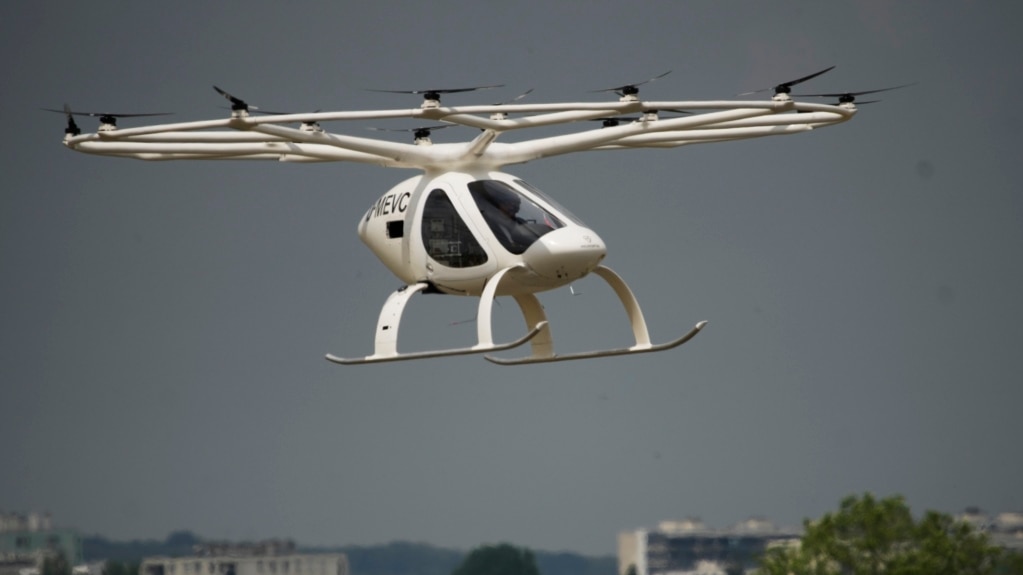French officials are preparing to offer flying taxi services to people attending the Paris Summer Olympics in 2024. If the taxis are actually deployed in the French capital, it could mark the first major real world demonstration of the flying technology.
Some air taxi developers attended the recent Paris Air Show to show off their products and seek industry support. One of the companies in attendance was Germany’s Volocopter, which plans to offer a flying taxi service during the Olympics.
But so far, no air taxi maker has received government approval to launch service in France. Volocopter hopes to be the first. But the company still needs to run its aircraft through intensive weather tests and provide thousands of pages of documentation to the European Union Aviation Safety Agency.
Company chief Dirk Hoke admitted to the Reuters news agency that securing the approval will not be easy. “It’s not a walk in the park to be the first…” he said.
Volocopter plans to carry out tests of its electric air taxis in different environments in Germany next month.
Hoke said that in addition to worries about government approvals, the environment for air taxi companies has also faced difficulties linked to economic slowdowns affecting the world.
Robin Riedel co-leads the Center for Future Mobility at the business advisory company McKinsey. She told Reuters that companies formed to support air taxi projects have lost about 30 percent of their value in recent years. In addition, many investors have decided to put money into drones instead of flying taxis.
Industry experts say they fear these struggles could signal more financial problems for many other companies involved in air taxi development.
Hoke – a former top executive at air industry player Airbus – has thought about a person he would like to be the first rider of his flying taxis – French President Emmanuel Macron.
“That would be super amazing,” Hoke told The Associated Press at the Paris Air Show. He added: “(Macron) believes in the innovation of urban air mobility. That would be a strong sign to Europe to see the president flying.”
One of the five planned Olympic trips would land in the heart of the city on a floating pad on the River Seine.
In the beginning, air taxi trips are likely to be short and costly. This is because limited battery technology restricts the distance and number of paying passengers the aircraft can carry.
The long-term success of air taxis will also be dependent on effective systems to manage all the air traffic using the skies. Experts say such systems will need new technology to provide safety for all flyers. As the industry progresses, the number of air taxis and drones is expected to reach into the millions.
Hoke said that one thing is sure, “It will be a total new experience for the people.” He added, “Twenty years later (when) someone looks back at what changed based on that, and then they call it a revolution. And I think we are at the edge of the next revolution."
I’m Bryan Lynn.

